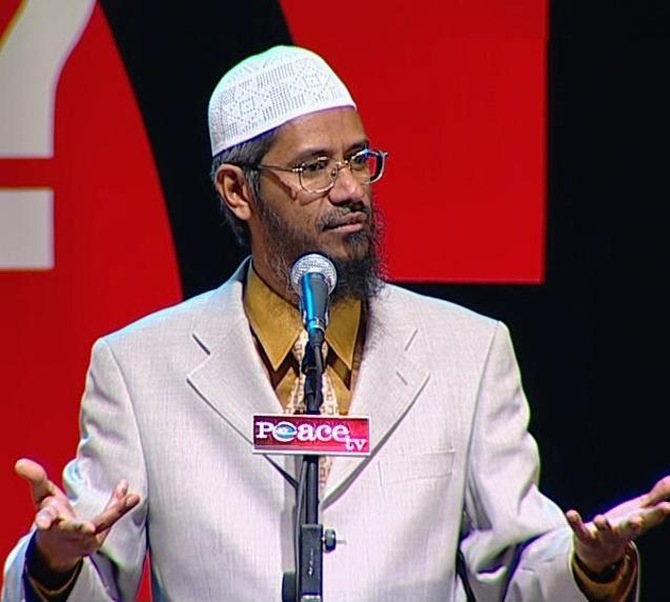
Naik has come under scanner after it was reported that Dhaka attackers were allegedly inspired by his speeches.
The officials also pointed out that Naik did not attend any subsequent meetings of the University Court and in fact had not paid a visit to AMU ever since his election.
“The 180-odd strong AMU Court, includes prominent Muslims from different walks of life and there are categories like, prominent professionals, educationists and religious scholars,” member in-charge of public relations AMU and director of Urdu academy at AMU Rahat Abrar said.
At that particular time, he said, Naik was largely considered a non-controversial figure and when his name came under the category of religious scholar, it was cleared.
Abrar, however, said that the Salafi school of thought, which is close to the school of thought which Naik is propagating, has not made any headway at AMU.
“There is not even a remote possibility of any official patronage to such radical schools of thought at AMU,” he added.
Secretary of the AMU Teachers Association Mustafa Zaidi said “At the time in which Naik was elected to the AMU court his overwhelming image was that of a Muslim preacher who championed the cause of inter-religious understanding. He has an elephantine memory and his speeches were interspersed with quotations from all religious scriptures, which included the Gita, Bible and many others.”
“However, even at that time, there was opposition from some AMU staff members, because of some controversial utterances by Naik against some other traditional schools of Islamic thought,” Zaidi said.
“AMU would certainly not permit any hardline school of thought to flourish here, because they believe in a very inclusive form of Islam which embodies the spirit of
secularism and tolerance,” he said.
“We certainly disapprove of the radical school, which is today being linked with teachings of Naik’s sermons. If there is any content of religious hatred in Naik’s sermons, it should be investigated and necessary action taken,” Zaidi said, adding at the same time, we would want that action should also be taken against all others who preach religious hatred and intolerance.
“If we are really serious about curbing religious hatred in the country, then similar punitive action should be initiated against Hindutva proponents, who are occupying high offices in the present Bharatiya Janata Party-led government and are yet indulging in spreading religious hatred,” Zaidi said.
There can be no double standards in dealing with religious hatred or ideologies which breed terrorism in the country, Zaidi said.